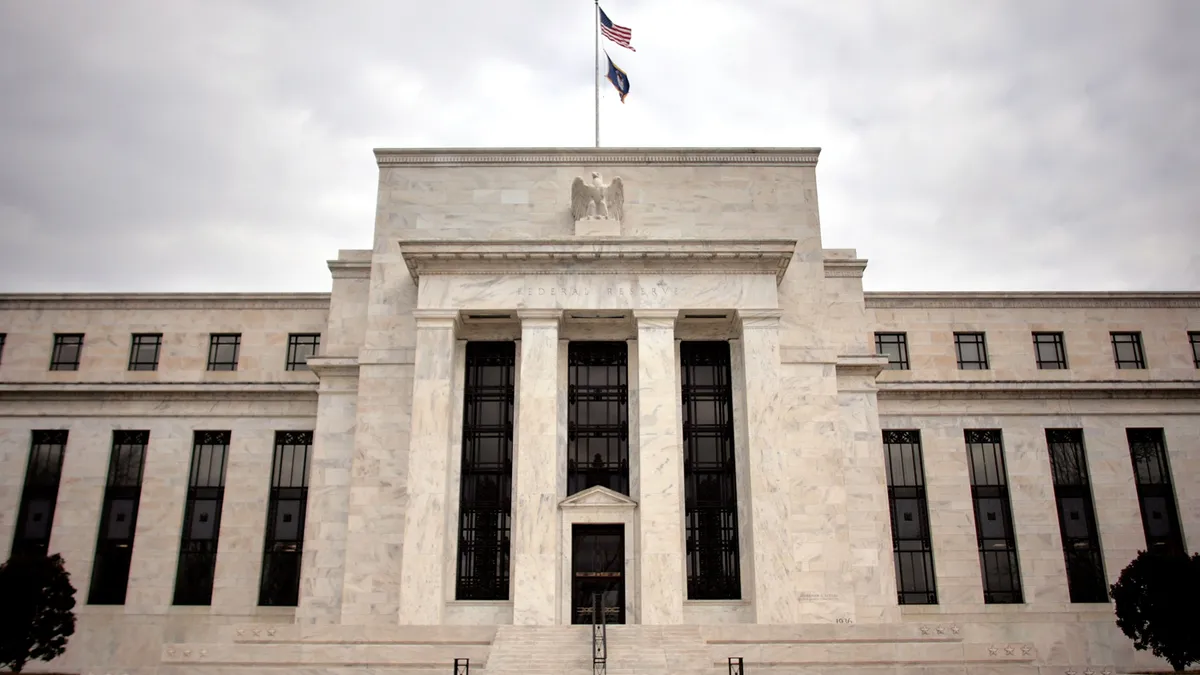Sarah Bloom Raskin, Lisa Cook and Philip Jefferson — President Joe Biden’s latest raft of nominees to fill vacant posts at the Federal Reserve, pledged Wednesday that, if confirmed, they would “commit not to seek employment or compensation” from any financial services company for four years after leaving the central bank.
The commitments, designed by Sen. Elizabeth Warren, D-MA, are meant to bolster the confidence of lawmakers and everyday Americans “that these public servants will make sound economic policy decisions in the public’s best interest,” the senator said.
They may also serve to counter an explosive allegation Sen. Cynthia Lummis, R-WY, leveled at Raskin last week. Lummis asked Raskin, during her nomination hearing in front of the Senate Banking Committee, whether she used her standing as a former Fed governor to help the fintech Reserve Trust — where she served on the board of directors — gain a master account with the central bank, a rarity among fintechs. The account gives Reserve Trust access to the Fed’s payments system and allows it to move money without working with a bank.
The Kansas City Fed rejected the company’s request in mid-2017, then approved it the following year, because Reserve Trust “changed its business model” and regulators in Colorado, where the company is based, “reinterpreted the state’s law” in a way that helped Reserve Trust “[meet] the definition of a depository institution,” the central bank satellite said Monday in a statement.
Raskin, who had served as a Fed governor from 2010 to 2014, called the Kansas City Fed in August 2017 about the application, Lummis said last week.
Raskin told lawmakers Wednesday in a written submission that she did “not recall any communications I made to help Reserve Trust obtain a master account,” The New York Times reported.
“Had I done so, I would have abided by all applicable ethics rules in such communications,” Raskin wrote.
The submission, with a Wednesday deadline, came at the request of Sen. Pat Toomey, R-PA, the banking committee’s ranking member.
Amanda Thompson, the communications director for Republicans on the Senate panel, called Raskin’s response a “case of selective amnesia.”
The Kansas City Fed, in its statement, said it “did not deviate from its review process” regarding Reserve Trust.
“It is routine for the Federal Reserve Bank of Kansas City to communicate on an ongoing basis with a requesting organization, its management (including directors), public officials and any relevant federal or state regulatory counterparts,” the central bank satellite said.
Chris Meagher, a White House spokesman, said with Wednesday’s submission, Raskin “has agreed to go beyond the most strict and robust ethics pledge in the history of nominees for the Federal Reserve,” Bloomberg reported.
Thompson, however, said, “The fact the White House felt it necessary to impose ‘the most strict and robust ethics pledge in history’ on Ms. Raskin is an implicit admission of her past unseemly use of the Washington revolving door.”
Ethics among Federal Reserve officials has become a hot topic over the past six months. The presidents of two Fed satellite banks resigned last fall when financial disclosure forms revealed they traded stocks in 2020 while also helping to set monetary policy — a practice that met the Fed’s code of ethics but raised concerns around potential conflicts of interest.
Less than a month later, the central bank issued new rules barring its board governors, 12 regional presidents and senior staff from buying individual stocks, holding investments in individual bonds or agency-backed securities, or entering into derivatives. Senior officials’ future investments would be limited to “purchasing diversified investment vehicles, like mutual funds,” the Fed said.
Policymakers and senior staff also would have to provide 45 days’ notice before buying or selling any allowed securities, must obtain approval for those transactions, and must hold any investments for at least a year, the Fed said. “Further, no purchases or sales will be allowed during periods of heightened financial market stress,” the central bank said.
The Fed ethics scandal deepened, though, after an amended financial disclosure uncovered that then-Fed Vice Chair Richard Clarida sold an exchange-traded fund in the run-up to the COVID-19 pandemic — then re-bought it three days later, just before the central bank signaled it might cut interest rates. Clarida resigned in January.
Boston Fed’s new chief
The Boston Fed on Wednesday named a successor to one of the presidents who left amid the ethics scandal. It chose Susan Collins, a University of Michigan economist, to lead the central bank satellite beginning July 1.
With the appointment, she becomes the first Black woman to serve as head of a Fed regional bank. (If confirmed, Cook would become the first Black woman to serve as a Fed governor.)
Collins served for nearly a decade on the Federal Reserve Bank of Chicago’s board of directors, until last year. She’ll have a voting role this year on the Federal Open Market Committee, which sets interest rates. Collins will serve out former Boston Fed President Eric Rosengren's five-year term, which ends in February 2026, and she can be considered for a second term.
"Throughout my career, I have been driven by a commitment to leveraging research, education, and public service to improve lives,” Collins said in a Boston Fed press release Wednesday. “I look forward to helping the Bank and System pursue the Fed's dual mandate.”


















